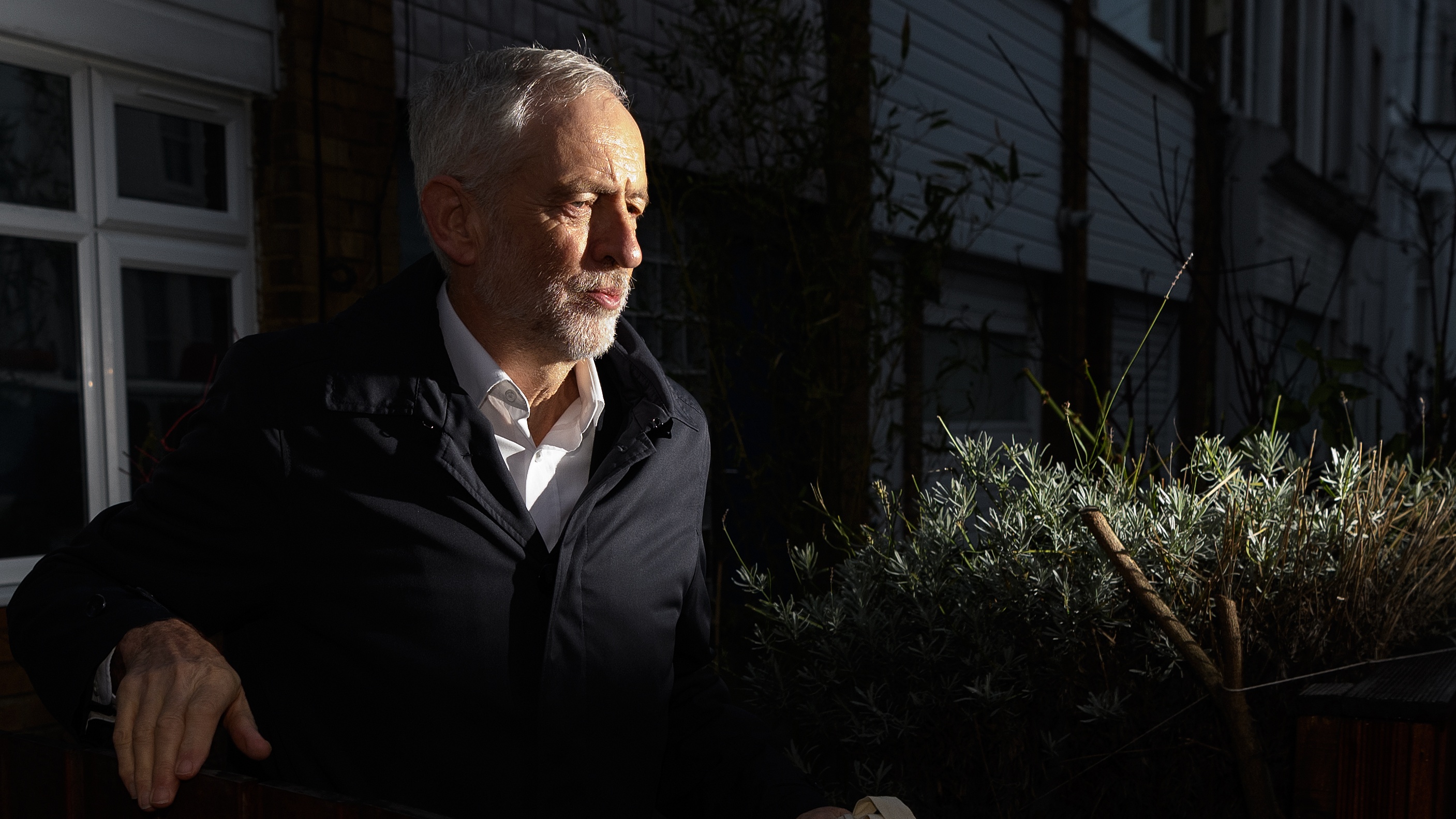Why everybody’s talking about Labour’s anti-Semitism whistleblower battle
Keir Starmer facing down party’s Corbynite wing in battle over Panorama documentary

A free daily email with the biggest news stories of the day – and the best features from TheWeek.com
You are now subscribed
Your newsletter sign-up was successful
Jeremy Corbyn faces legal action over the way the Labour party handled anti-Semitism in its ranks under his leadership.
New leader Keir Starmer clashed with his predecessor, Jeremy Corbyn, for the first time, declaring Labour to be “under new management” as the party agreed to pay “substantial” damages to seven anti-Semitism whistleblowers.
What is the dispute about?
The Week
Escape your echo chamber. Get the facts behind the news, plus analysis from multiple perspectives.

Sign up for The Week's Free Newsletters
From our morning news briefing to a weekly Good News Newsletter, get the best of The Week delivered directly to your inbox.
From our morning news briefing to a weekly Good News Newsletter, get the best of The Week delivered directly to your inbox.
A group of Labour Party staffers appeared on a BBC Panorama special, Is Labour Anti-Semitic?, in July last year, criticising the then-leadership’s handling of anti-Jewish racism complaints.
A Labour Party spokesperson subsequently described the whistleblowers as “disaffected former staff” with “personal axes to grind”, and accused them of trying to undermine Corbyn.
In response, seven of the whistleblowers - Kat Buckingham, Michael Creighton, Samuel Matthews, Dan Hogan, Louise Withers Green, Benjamin Westerman and Martha Robinson - took legal action and asked the Labour Party formally to apologise in court.
This week - with Labour now under Starmer’s leadership and Corbyn on the backbenches - the party said that it would pay damages to the whistleblowers, adding that it was determined to root out anti-Semitism in the party.
A free daily email with the biggest news stories of the day – and the best features from TheWeek.com
“Before the broadcast of the programme, the Labour Party issued a press release that contained defamatory and false allegations about these whistleblowers,” the party said.
“We acknowledge the many years of dedicated and committed service that the whistleblowers have given to the Labour Party as members and as staff. We appreciate their valuable contribution at all levels of the party.”
The party added that it would “unreservedly withdraw all allegations of bad faith, malice and lying”, saying that it wanted to “apologise unreservedly for the distress, embarrassment and hurt caused by their publication”.
Labour also agreed to pay damages to the presenter of the programme, BBC journalist John Ware, after he was subject to “false and defamatory” comments by the Labour Party prior to the programme being aired.
Why is the settlement controversial?
For Corbyn and his allies, the admission of wrongdoing through apologies and payments is viewed as the new party leadership forcing the previous one to take the responsibility for the scandal.
The BBC’s assistant political editor Norman Smith said the payout was an “extraordinary moment” which demonstrated Starmer’s pledge to rid the party of anti-Semitism.
But Corbyn described the decision to settle the claims with an apology and “substantial payments” as “disappointing”, saying the party’s legal advice was that it “had a strong defence”.
The former Labour leader said the settlement “risks giving credibility to misleading and inaccurate allegations” about inaction over anti-Semitism in the party, branding Starmer’s move a “political decision, not a legal one”.
And Corbyn’s close ally Len McCluskey, the Unite union chief, told The Independent: “Today’s settlement is a misuse of Labour Party funds to settle a case it was advised we would win in court.”
A senior Labour source added that Corbyn appeared to be determined not to be “remotely supportive” of Starmer, and accused him of attempting to deflect blame over his own failings, reports The Telegraph.
Jewish groups have said Starmer’s settlement was the right decision, however, with the Jewish Labour Movement saying that “it is a sad reflection of its historic role as the party of working people that Labour sought to pursue and silence its former employees for speaking out against racism.”
What will happen next?
Though the Labour party has agreed to pay damages to the BBC’s Ware, the Panorama reporter is now taking separate legal action against Corbyn personally following his comments on Wednesday, his lawyer confirmed to The Huffington Post.
Mark Lewis, from Patron Law, who represented both Ware and the staffer whistleblowers in the legal action against Labour, said: “I can confirm that I have been instructed to pursue cases.”
The affair is another blow to a the faction of the Labour Party hit last month by the sacking of Corbyn supporter Rebecca Long-Bailey, who was removed as shadow education secretary for sharing an article containing what Starmer’s office said was an “anti-Semitic conspiracy theory”.
The article in question was an interview with Maxine Peake in The Independent, in which the actor claimed that the US police tactic of kneeling on a detainee’s neck was taught by the Israeli secret service. Long-Bailey was the only notable Corbyn supporter to still have a top shadow cabinet job in the new regime, says The Guardian.
Labour’s handling of anti-Semitism complaints under Corbyn is also the subject of an ongoing inquiry by the Equality and Human Rights Commission.